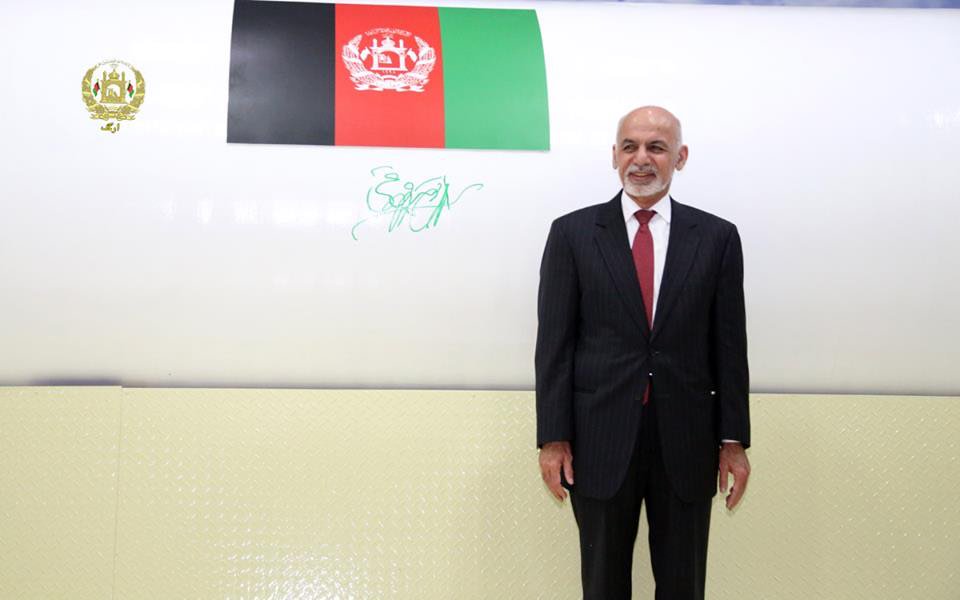
KABUL — The Afghan president on Monday assured his people that their rights will not be compromised in the name of peace with the Taliban, days after the U.S. envoy tasked with resolving America’s longest war reported significant progress in talks with the insurgents.
President Ashraf Ghani’s remarks came as U.S. envoy Zalmay Khalilzad told the New York Times that American and Taliban officials have agreed in principle to the framework of a peace deal with the insurgents.
The newspaper on Monday quoted Khalilzad as saying the “framework deal, which still has to be fleshed out before it becomes an agreement,” will see the Taliban commit to guaranteeing that Afghan territory is not used as a “platform for international terrorist groups or individuals.”
The deal, the envoy said, could lead to full pullout of American troops in return for a cease-fire and Taliban talks with the Afghan government.
Ghani, in turn, apparently tried to assure Afghans that no deals would be made without Kabul’s awareness and full participation in negotiations.
“Our commitment is to provide peace and to prevent any possible disaster,” President Ashraf Ghani said in his address to the nation Monday. “There are values that are not disputable, such as national unity, national sovereignty and territorial integrity.”
Ghani and Khalilzad met late on Sunday in Kabul. In a statement, Ghani’s office said Monday that the U.S. envoy shared details of his latest round of talks with the Taliban in Qatar. It quoted Khalilzad as saying he had discussed a cease-fire deal with the Taliban but that there was no progress on the issue.
Khalilzad and the U.S. Embassy in Kabul did not immediately respond to AP’s requests for comment.
The Taliban have been staging near-daily attacks targeting Afghan forces, causing scores of casualties every week. Their offensive has not let up despite the severe Afghan winter and the Taliban now hold sway over nearly half of the country.
That has made peace an even more pressing issue.
Khalilzad met with the Taliban on a number of occasions in recent months — most recently last week in Qatar where the Taliban have a political office — in the latest bid to end America’s longest war. The U.S. invaded Afghanistan after the Sept. 11, 2001 attacks to topple the Taliban, who were harbouring Osama bin Laden and al-Qaida.
Monday’s statement from Ghani’s office also claimed that the Taliban demanded from Khalilzad the withdrawal of all foreign troops from Afghanistan, but that there was also no agreement on that issue.
The statement added that Khalilzad has no authority to discuss issues such as a future Afghan administration but that his goal is to facilitate an intra-Afghan dialogue, meaning direct talks between the Taliban and Kabul.
On Saturday, after six days of meetings with the Taliban in Qatar, Khalilzad on his official twitter account said: “Meetings here were more productive than they have been in the past.”
“We made significant progress on vital issues,” he tweeted, without offering details.
Abdul Hakim Mujahid, a former Taliban official and currently a member of the High Peace Council, an independent body of clerics and respected Afghan figures, said he believes the Qatar talks resulted in a “good understanding between both sides” but that more discussions are needed in the coming weeks or months.
“Afghanistan’s problem is not so simple that it can be solved in a day, week or month, it needs more time and more discussions,” Mujahid told The Associated Press.
The Taliban have in the past refused to negotiate directly with Kabul — a standing that does not appear to have changed. They have maintained that they are prepared to talk with U.S. officials only and only about the pullout of foreign forces from Afghanistan.
Afghan political analyst Waheed Muzhda says he believes that Khalilzad and the Taliban have reached agreement on both the withdrawal of U.S. forces from Afghanistan and a cease-fire deal, but that neither side is prepared to say so at this point.
“But peace talks are not possible unless both sides first agree on a cease-fire,” Muzhda said.
Ghani, in Monday’s address to the nation, also stressed that American and other foreign forces are in Afghanistan because they are needed here and that if there is to be any downsizing or pullout, the Kabul government will have to play a role in the talks.
Ghani also reiterated his call on the Taliban to engage “in direct talks with the Afghan government.”